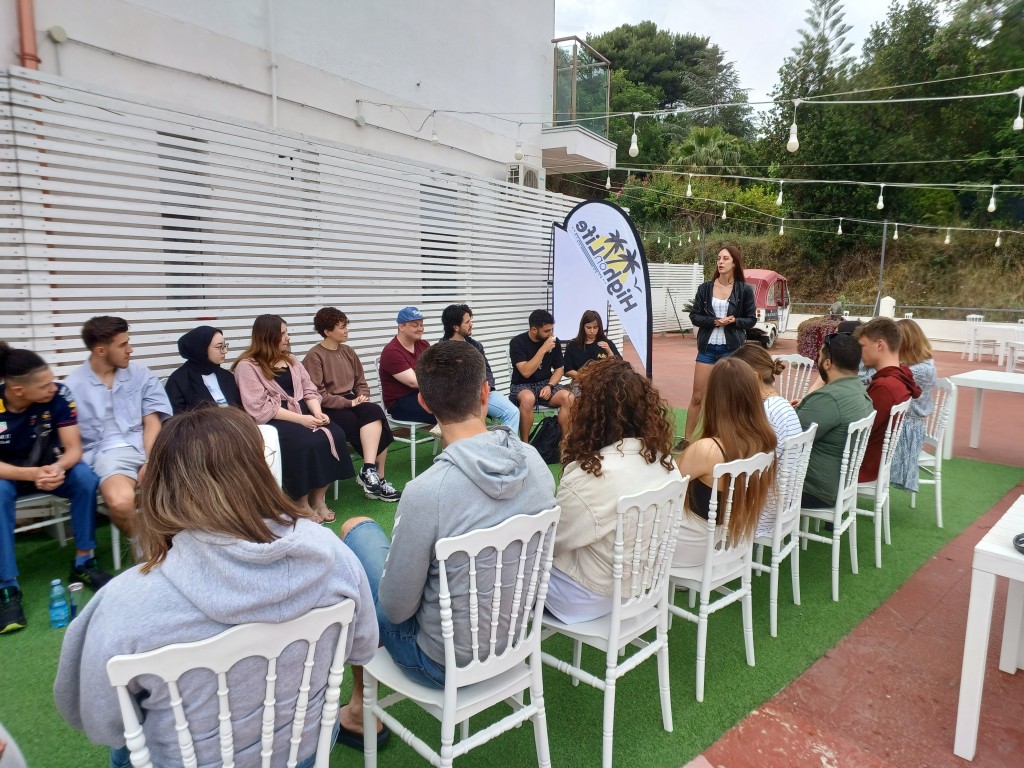Boosting Inclusion Through Youth Work Vol. 2
In the picturesque coastal town of Tropea, Italy, a transformative training course recently took place, focusing on equipping youth workers with essential tools for fostering inclusion among refugees and migrants. Against the backdrop of sun-kissed beaches and historic architecture, participants from diverse backgrounds convened to embark on a journey of learning, collaboration, and empowerment.

Understanding the Need for Inclusion
In an era marked by unprecedented migration patterns and global challenges, the importance of fostering inclusion cannot be overstated. Refugees and migrants often face numerous barriers upon their arrival in host communities, ranging from language and cultural differences to social isolation and discrimination. Recognizing these challenges, the training course sought to empower youth workers with the knowledge and skills needed to create welcoming and supportive environments for all.
The Venue: Tropea, Italy
Nestled along the rugged coastline of Calabria, Tropea provided an idyllic setting for the training course. Participants were greeted by panoramic views of the Tyrrhenian Sea, while the town’s rich history and vibrant culture offered a backdrop conducive to both learning and relaxation. From exploring ancient ruins to savoring authentic Italian cuisine, Tropea provided the perfect blend of inspiration and tranquility.
Dynamic Learning Sessions
Facilitated by seasoned experts in the fields of migration, social inclusion, and youth empowerment, the training course offered a diverse range of learning sessions. Through interactive workshops, discussions, and case studies, participants delved into topics such as:
1. Cross-Cultural Communication: Strategies for effective communication across linguistic and cultural barriers.
2. Trauma-Informed Care: Understanding the impact of trauma on refugees and migrants and implementing trauma-informed approaches.
3. Community Engagement: Building bridges between host communities and newcomers through collaborative initiatives.
4. Legal and Human Rights Frameworks: Exploring the legal rights and protections afforded to refugees and migrants at both national and international levels.
Practical Tools and Strategies
One of the highlights of the training course was the emphasis on practical tools and strategies that participants could immediately implement in their work. From developing inclusive programming to advocating for policy change, youth workers gained valuable insights into:
– Creating culturally sensitive educational materials and resources.
– Organizing intercultural events and workshops to promote dialogue and understanding.
– Establishing support networks and referral systems to connect refugees and migrants with essential services.
– Leveraging digital platforms and technology to facilitate access to information and resources.
Building a Network of Support
Beyond the activities, the training course provided a unique opportunity for participants to forge meaningful connections with like-minded individuals from around the world. Through collaborative activities and informal networking sessions, youth workers not only shared their experiences and expertise but also found solidarity and support in their shared commitment to fostering inclusion and social justice.









